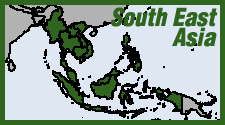 The UN Office on Drugs and Crime (UNODC) in its newly released annual Southeast Asia Opium Survey (PDF) finds that opium production in Burma continued to increase in 2013—up 26% to an estimated 870 metric tons. This is the highest amount since the UN began keeping track in 2002. In 1999, the Burmese regime promised to eradicate opium production by 2014, but production has increased every year since 2006. The UNODC report acknowledges that eradication efforts have failed to address the political and economic factors that drive farmers to grow opium in the first place. With poppy fetching 19 times more than rice, struggling peasants have few other options to make a living.
The UN Office on Drugs and Crime (UNODC) in its newly released annual Southeast Asia Opium Survey (PDF) finds that opium production in Burma continued to increase in 2013—up 26% to an estimated 870 metric tons. This is the highest amount since the UN began keeping track in 2002. In 1999, the Burmese regime promised to eradicate opium production by 2014, but production has increased every year since 2006. The UNODC report acknowledges that eradication efforts have failed to address the political and economic factors that drive farmers to grow opium in the first place. With poppy fetching 19 times more than rice, struggling peasants have few other options to make a living.
The report also notes rising demand for opium in nearby countries, including China. But the most critical factor may be the renewed insurgencies in Kachin and Shan states. Eradication efforts (undertaken at international behest) may have helped spark the renewed violence—and then, as always, insurgency wars fuel the opium trade, providing warlords incentive to encourage production through high prices in order to resell to traffickers and fund their warchests. A classic vicious cycle.
Ironically, at the start of the year UN experts had expressed fears that production could jump in Burma due to successes against opium in Afghanistan, driving up the price and creating a so-called "balloon effect" (squeeze production at one point, and it bulges in another). Instead, Afghan opium production hit a record high in 2013—while apparently doing nothing to diminish Burmese production. Burma, Laos and Thailand now account for 18% of global opium production, the UNODC report found. (VOA, Radio Australia, Dec. 18; AP, Dec. 17)
The opium-growing region straddling the borders of these three countries, the "Golden Triangle," became the top global supplier during the Southeast Asian wars of the 1960s. But production soared in the Afghanistan-Pakistan "Golden Crescent" during the Mujahedeen war of the 1980s, and Afghanistan finally overtook Burma as the world's biggest producer in 1991. With war now raging in both countries, junkies worldwide should be well-supplied for the foreseeable future. Alas.
Cross-post to High Times







Recent comments
2 days 9 hours ago
1 week 1 day ago
5 weeks 1 day ago
9 weeks 9 hours ago
13 weeks 14 hours ago
13 weeks 5 days ago
23 weeks 5 days ago
27 weeks 6 days ago
28 weeks 6 days ago
28 weeks 6 days ago